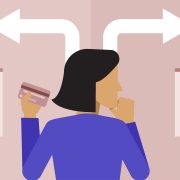The 15 Most Common SEO Mistakes That Beginners Make (And How to Avoid Them)
The success (and failure!) of any website depends on the amount of traffic it gets. If the website gets good organic traffic, then it is sure to grow and make money. On the other hand, if the website doesn’t get the traffic it will be pushed into the abyss of failure.
You sure don’t want the latter, do you?
Sometimes a few common SEO mistakes can damage the ranking of the page on the search engine result pages.To avoid those mistakes and to improve the SEO of your website, we have curated a list of the 15 most common SEO mistakes that beginners make.
Using Incorrect Keywords for Your Audience
The first common SEO mistake that many people make is using incorrect keywords to drive traffic to their site. By choosing the wrong keywords, you’ll never be able to get organic traffic on your site. To do that you must choose the right keywords for your brand. Think of how people will search you? Or by which keywords will they come to know about you? If you fail to target the words that will be used by the people, you have no chance to rank on the first page or even on the second.
Another mistake that can lower the SO of the website is the use of popular and highly competitive keywords.
If you are planning to include keywords, make sure to Google it first and check how many results pop on the first page. Avoid using the keywords which are mainstream and popup the names of gigantic companies.
To avoid this mistake:
- Make sure you conduct a keyword research
- Don’t use too competitive keywords
- Don’t focus on just one keyword. Have some secondary keywords too
Overusing the Keywords
Stuffing your content with keywords is a thing of the past to score a good global SEO or local SEO, for example SEO Montreal. However, as the gadgets are getting smart, search engine algorithms are getting smarter. If you continue to apply the old tactic of overusing the keywords in your content, then get ready to bid farewells to a good ranking.
Instead of overusing the keywords try to add them smartly to your content at appropriate places. Your main keywords should be used throughout the text in a limited number. Let’s say they should be 1-1.5% of the total length of your content. For the rest of your content, aim to use synonyms and secondary keywords.
Not Creating Original Content
It has become a common practice by many beginners to copy the content of other creators, for instance, their blogs, pictures, or any graphics that they designed. If they don’t copy it completely, then they just spin the article and publish it on their blog page.
Search engines, especially Google, have smart and advanced algorithms. It can easily detect if the content on the website is copied or duplicated. This leads to the penalty from the search engines. It will not rank the sites that have copied content.
To avoid this common SEO mistake, refrain to copy content from other websites. If you do so take prior permission from the website or give credit to them.
Instead of running after quantity, try to aim for quality. One good quality blog is better than 4-5 copied blogs. Think of unique topics that will interest your readers and write engaging content to boost your SEO.
Poor Formatting of The Content
Failing to use the heading tags, image alt tags, paragraph tags, number lists, etc. can decrease your SEO.
It is very important to use appropriate tags on your website. H tag should be used for all the headings. Remember, you can only have one H1 tag on your blog and it should include the keywords that you’ve selected to target the audience.
Use the H2 tag for the main headings of the content, if you plan on further subdividing your main headings then use the H3 tag.
Headings are of extreme importance as they are displayed on the search result pages. It helps the people to get an idea about what kind of content you have on your webpages and will they find their appropriate answers there or not.
Instead of writing one big block of content, try dividing it into smaller chunks by using headings and subheadings. It becomes easier for the users to read and understand the information that you’ve shared on your page.
Slow Website
Want to boost the SEO? Then speed up your website. In an online world, people do not have the patience to wait for your website to load, especially when they have other options available.Every second that the website takes to load can make you lose many potential customers, therefore, your website needs to load quickly to cater to the needs of the users.
Google constantly strives to make the user experience better. For this purpose, it takes into account the average time a user spends on a website, and then the website is ranked on the result pages according to it.
If visitors come to your site and leave within a few minutes due to the slow speed of your website, then Google will rank you downwards.
To avoid this negative indicator, be sure to work on the speed of your website.
Failing to Optimize the Images
Websites without images are like old, plain, and boring newspapers. Images make the websites more engaging and attractive.
The importance of images increases manifolds in an eCommerce website. When people shop online they rely on the images that have been uploaded on the website. Therefore, high-resolution images are necessary for this purpose.
But, did you know that using lots of pictures and that too of high quality can slow down the speed of your website? This in turn can affect your SEO adversely.
To prevent this from happening, try to optimize your images to increase the speed of the webpage.
If your website is built on WordPress then there are plenty of plugins to optimize the pictures and compress their sizes, without affecting the resolution of the images. Smush is the most popular image optimization tool on WordPress.
Not Optimizing Images with Keywords
Google cannot read the images. It only understands the content which is available in textual form. But, thanks to the alt tag of the HTML, as it tells Google what the image is about.
Keywords are not only for headings and blog posts. You need to optimize your images with keywords to rank higher in search engine result pages. Optimizing both your blog post and your images with keywords can bring extra traffic to your site.
Mobile Unfriendliness
When was the last time you accessed a website on your phone? Probably, a few minutes ago, right?
With the increased use and dependence on mobile phones, a lot of users visit a website on their mobile phones.
If your site is not mobile-friendly or doesn’t load the resources properly on it, then you can lose a handsome chunk of traffic. The bounce rate of your website will increase and it will make the search engines lower your rank on the search result pages.
Poor Internal Linking Structure
Many people tend to overlook the importance of adding internal links in their blog posts. This is a big no-no for SEO.
To index pages, search engines follow the links mentioned in the posts. If there are no internal links that point to the website, it will be difficult for Google and other search engines to index your page.A blogpost with no internal links is regarded as an unimportant one by Google.
Poor Site Maintenance
Your job isn’t over after you have posted your blogpost, no. After publishing your content you must visit it frequently to check if it’s working perfectly or not.
Google wants its users to derive the best experience from the sites it mentions on its result pages. It will not send any of its users to a website that is not maintained properly.To make your mark on the result pages, make sure to maintain your website and check if it’s working properly.
Broken Links
Broken links are a big turn-off for SEO. When your reader follows the link that you have provided in your content and lands on ‘404 Page Not Found’ it irritates them and they exit without thinking further.
Frequently check that all the links that you have mentioned, either internal links or external, are working properly. If there are broken links, then it will affect the ranking of your website.
Not Sparing Enough Time on SEO
Failing to plan is actually planning to fail. If you do not spend proper time on improving the SEO of your website, then, unfortunately, your rankings will fall.
Invest your time in optimizing the SEO of your website so that it can benefit you in the long run.
Not Setting Up SEO Plugins Correctly
If you do not have an SEO plugin, then you are committing a crime. A good SEO plugin is a must for boosting SEO.
However, if you have installed a plugin for SEO, then make sure it is set up properly. Take the help of an SEO expert and set it up according to your requirements. If you fail to set up your SEO plugin correctly, then instead of improving your SEO it can cause severe damages to your website
Not Promoting Content on Social Media
Social media is an excellent way to promote your content and invite more people to visit your website. Generating traffic on social media is regarded as one of the positive SEO ranking factors.
If people come from social networking platforms to your website, it indicates to Google that your website has some interesting and useful content for the visitors.
Inconsistent Posting
Out of sight, out of mind. Make this your mantra if you want to improve your ranking. If you don’t post consistently and wish to improve your rank on result pages, then you are living in a fool’s paradise.
To step up your SEO game, you must post consistently to let the search engines know that your website is active and has new content for visitors.
Conclusion
SEO plays an important role in getting organic traffic on the website. There are thousands of tips to improve your SEO in 2021, available online. But, even then, it is common to make SEO mistakes, especially in the beginning.Check the above-mentioned points to avoid the common SEO mistakes in 2021. If you have made an SEO mistake, then look for the solutions we have provided above. It’ll help you to step up your SEO game.
















